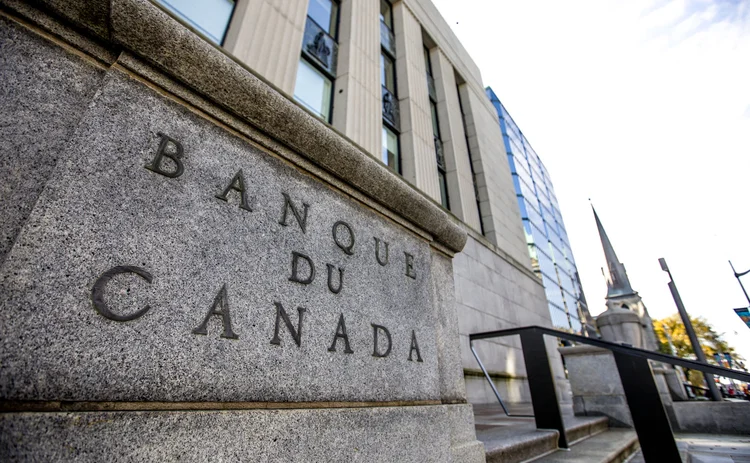
Technology services: Vermeg’s collateral management solution
Software provider enables Bank of Canada to conduct faster and more reliable market operations

During the Covid-19 pandemic, many central banks had ramped up their market operations to alleviate a sharp tightening of market conditions. For Canada, the experience brought home to policy-makers the importance of having robust and up-to-date lending infrastructure in place during times of stress.
“During the 2008 and 2009 financial crisis, central banks globally had moved from inactive to very active market participation in the repo markets,” says Maksym Padalko, adviser at the Bank of Canada’s financial markets department. “Bank of Canada had been a little bit behind in terms of improving its technology for repo markets operations because our financial system was less affected by the financial crisis at that time.”
When the pandemic hit, the BoC found itself having to conduct a plethora of new operations to meet market demand for liquidity. Padalko says that while the central bank had been preparing to upgrade its existing systems before Covid, it might not have moved quickly enough.
To address the issue, the BoC invited bids for upgrading its existing collateral management system for a range of market operations just prior to the start of the pandemic. The central bank eventually picked Megara, a solution built by the software provider Vermeg, which allows primary dealers in Canada to allocate collateral directly with the BoC through a web-based dealer interface, instead of through emails or phone calls as they had to in the past.
In September 2023, the BoC started using Megara to support its suite of repo operations, including overnight repo and reverse repo, term repo and securities repo. A year later, the BoC further launched a Securities Lending Program (SLP) to replace its Securities Repo Operations, also using Megara to be its technical partner.
Why Megara?
During the selection process, the BoC examined how well each service provider’s solution aligns with a set of guiding principles it formulated. These included: automation – the ability of the solution to operate with minimal human intervention, which would allow it to handle a sudden spike in transaction volumes during stress times; flexibility – the ability to change existing central bank facilities and create new ones quickly; and resilience – the ability to continue operations through disruption, measured by metrics such as the number of critical incidents.
“Vermeg ticked all the boxes in terms of the functionalities they have,” Padalko says, adding that the firm also offered a “very cost-effective” service customised to the Canadian central bank’s needs.
“They offer a module structure where we could pick modules we want to use so we didn’t have to get the whole solution,” he says. “For example, we could install their product without using their back-office capabilities.”
Padalko also points to Vermeg’s solid experience in working with other central banks on similar projects, including designing a software solution that will enable European central banks to connect to the European Collateral Management System – which is planned for launch in June 2025. The official says a few other central banks, including the Bank of England, have also used Vermeg’s products.
Faster and more reliable post-trade process
Following Megara’s launch at the Bank of Canada for standard repo and collateral operations in September 2023, the solution has served to improve operational resilience and increase efficiency in local markets. “With the partnership and expertise of the Bank of Canada, Megara has been deployed and succeeded in the initial phase of modernising repo and collateral management activities,” says Terrance Baum, key accounts director at Vermeg.

“Following an auction, Megara manages the trade capture and processing end-to-end using robust controls and best-practice procedures aimed at reducing or eliminating the legacy manual touchpoints in daily operations,” Baum says. With reduced ‘touchpoints’, the level of automation increases, he says. More crucially, the number of errors and exceptions decreases dramatically, Baum adds.
For example, prior to using Vermeg’s product, the central bank needed to manually check the eligibility of the collateral placed by the dealer. If an issue was found, it would take both parties even more time to rectify it. But Megara has now automated the screening process, making it much quicker than before.
“Through automation, resiliency is improved, which provides confidence for stakeholders to focus on additional areas for improvement,” Baum says. “With the expert guidance of the Bank of Canada and Vermeg’s central banking client community, Megara incorporates best-practice design so clients can focus on strategic improvements to existing policy.”
Padalko confirms that with the use of Vermeg, the BoC has managed to slash the processing time for trades with primary dealers from over an hour to single-digit minutes. The tool has also bolstered the central bank’s ability to handle larger volumes of operations when needed.
Securities lending facility
Building on the success of their collaboration in 2023, the BoC launched its SLP in October 2024, drawing on the technical support from Vermeg’s team and Megara’s capabilities. Under the programme, the bank lends Canadian government bonds and treasury bills to primary dealers on an overnight basis, while accepting other eligible securities as collateral. The aim is to enhance liquidity in the securities markets.
Padalko says preparation for the launch of the SLP was “very smooth”. The central bank decided in February 2024 to set up the facility. It then went through a two-month initial ‘discovery’ period with the Vermeg team where they discussed implementation plans, before carrying out further internal testing over the next few months. The programme went live in October and the bank has plans to introduce further upgrades to the software.
Padalko speaks highly of Vermeg’s support along the way. “Vermeg worked with us very effectively to fit their code into our legacy software,” he says. “We were happy with their flexibility, with their speed of execution, with their level of understanding our business needs.”
Looking forward, Vermeg will also be the BoC’s technology partner for joining the Canadian new triparty system, the Canadian Collateral Management System.
The Central Banking Awards 2025 were written by Christopher Jeffery, Daniel Hinge, Daniel Blackburn, Joasia Popowicz, Riley Steward, Jimmy Choi, Levente Koroes, Thomas Chow and Blake Evans-Pritchard.
Only users who have a paid subscription or are part of a corporate subscription are able to print or copy content.
To access these options, along with all other subscription benefits, please contact info@centralbanking.com or view our subscription options here: www.centralbanking.com/subscriptions
You are currently unable to print this content. Please contact info@centralbanking.com to find out more.
You are currently unable to copy this content. Please contact info@centralbanking.com to find out more.
Copyright Infopro Digital Limited. All rights reserved.
As outlined in our terms and conditions, https://www.infopro-digital.com/terms-and-conditions/subscriptions/ (point 2.4), printing is limited to a single copy.
If you would like to purchase additional rights please email info@centralbanking.com
Copyright Infopro Digital Limited. All rights reserved.
You may share this content using our article tools. As outlined in our terms and conditions, https://www.infopro-digital.com/terms-and-conditions/subscriptions/ (clause 2.4), an Authorised User may only make one copy of the materials for their own personal use. You must also comply with the restrictions in clause 2.5.
If you would like to purchase additional rights please email info@centralbanking.com




